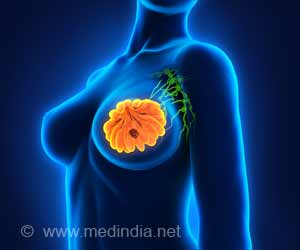More than 80 percent of young women successfully breast-fed or bottle-fed breast milk, including those with a history of a prior breast operation, stated new research.

However, there is concern among breast surgeons about the potential for a surgical procedure that invades breast tissue to disturb the delicate subareolar complex and damage milk ducts or nerves 3,4 and interfere with a woman's future ability to breastfeed. (Such procedures include a minimally invasive procedure such as a diagnostic biopsy or a major surgery such as reduction mammaplasty.)
"Pediatricians and obstetrician-gynecologists who refer teenage patients for treatment of breast conditions, as well as parents, are concerned that surgery may impact breast development and eventual lactation," said Laura C. Nuzzi, BA, clinical research manager, Boston Children's Hospital, Boston, Mass.
Research about the relationship between breast surgery and later breastfeeding is limited. 3,5,6 "There have been some small cohort studies that examine breastfeeding after surgery for benign breast disease later on in life, but they don't ask these questions in adolescents and young women prior to having children," explained Shannon M. Malloy, BS, a clinical research associate in the Adolescent Breast Clinic at Boston Children's Hospital.
Researchers at Boston Children's Hospital studied the ability to breastfeed in eligible mothers between the ages of 18 and 45. The study compared breastfeeding capability among women who had been previously diagnosed and treated for a breast condition with those who had not.
Of the total 85 women in the study, 15 had a prior history of breast disease, including breast cysts, fibroadenoma (benign tumors), and macromastia (enlarged breasts). Sixteen women underwent breast surgery, including breast augmentation, reduction mammoplasty, and biopsy. Regardless of whether they had previous breast surgery or not, 80 percent of the women in the study were able to breastfeed or obtain breast milk for bottle feeding.
Advertisement
Young women in the study completed a survey that was developed by Boston Children's Hospital study team called the Mother and Infant Lactation Questionnaire (MILQ), which gathers information about the general health and well-being of mothers and their infants as well as the physical, socioeconomic, and emotional components of the breastfeeding experience. Some measures include maternal breastfeeding history, milk quality and quantity, challenges and barriers to breastfeeding, and breastfeeding initiation, duration, and satisfaction.
Advertisement
The research team is disseminating the survey both within the hospital environment and in the greater community. They hope to validate the survey as an instrument for standardizing data capture related to lactation and barriers to having the best possible breastfeeding experience. With funding from the Plastic Surgery Foundation, the researchers plan to expand the use of the survey in the greater Boston area beginning fall 2020 to test its validity in racially and ethnically diverse populations.
"Our goal is to eventually validate the survey in a host of diverse populations. Once it's validated, we want to license the survey so providers can use it as a screening tool in their clinic and epidemiologists can use it for research purposes," Ms. Nuzzi said.
Source-Eurekalert















